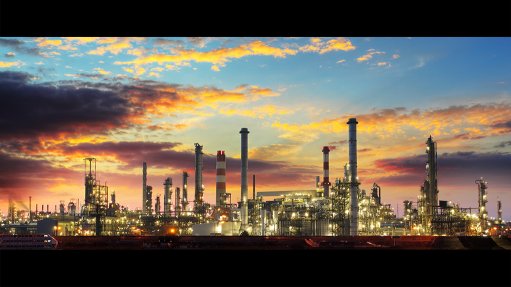
NO NEED TO IMPORT
Reduced demand will see South Africa becoming somewhat self-sufficient in terms of fuels production if all refineries are operational
Photo by: Adobe
It is expected that the Covid-19 pandemic will continue to negatively affect liquid fuels demand in the short term, but whether this represents a long-term structural shift is not yet clear, says South African Petroleum Industry Association (Sapia) executive director Avhapfani Tshifularo.
Before the pandemic, South Africa was a net importer of petrol and diesel, but Tshifularo believes that, in the short term, South Africa will become somewhat self-sufficient in terms of fuels production as a consequence of this reduced demand if all refineries are operational.
“The setback of the incident at the Astron Energy oil refinery in Cape Town in July does, however, mean that South Africa will remain a net importer due to the loss of this production capacity,” he explains.
Astron Energy spokesperson Suzanne Pullinger said in a media statement that the incident did not pose a threat to fuel supply, and that the rest of the plant remained in a stable, operational condition.
“If the economy picks up following incentive packages from government and the call to rebuild the economy, the structural shift is likely to cause an increase in demand for liquid fuels,” Tshifularo explains.
An impact of Covid-19 on the liquid fuels industry has been to significantly reduce demand for all petroleum products over the past several months. Following the Level 5 lockdown, which began in March, the immediate impact on refineries was a slowdown in operations followed by a complete shutdown.
“The demand destruction caused a massive overhang of products in the international market, which meant prices collapsed globally,” Tshifularo tells Engineering News, adding that the demand collapse occurred across all products, including crude oil.
When economies globally started to return to normal following the easing of lockdown restrictions, the demand for oil products began to rise, as did the oil price.
“However, a large overhang of crude supply still remains in the market. This should temper prices in the immediate future,” Tshifularo says. However, he notes that even this overhang is being “worked down” as demand slowly rises. When the overhang is eliminated, he expects that prices will return to levels seen before the Covid-19 outbreak.
Moreover, petroleum product prices in South Africa are heavily influenced by the exchange rate and international oil prices. So far this year, a combination of factors – including the Covid-19 pandemic – have impacted on international oil prices.
“During the lockdown, the price of petrol locally decreased to R11.52/